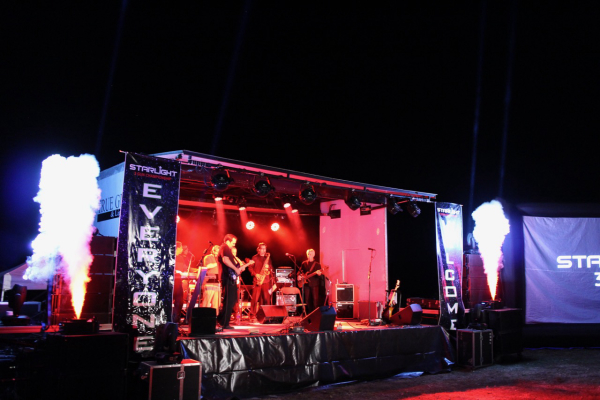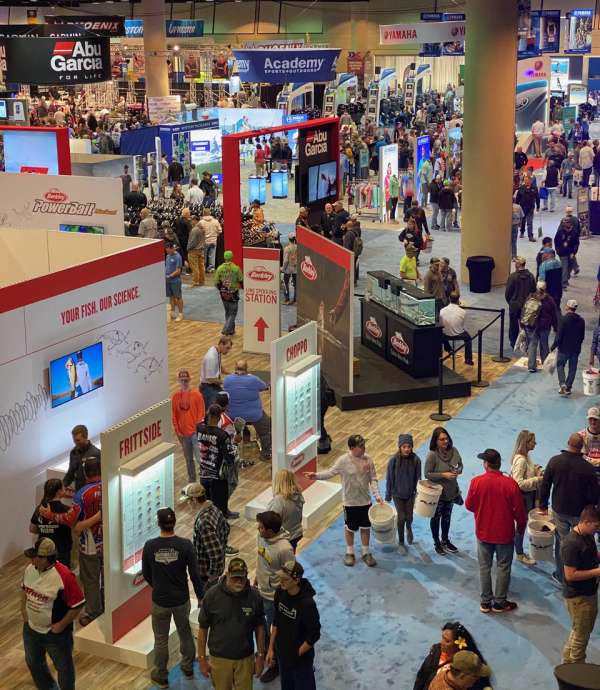Sometimes good ideas with great “upside potential” don’t happen. A combination of things from being ahead of (or behind) technology (when’s the last time you saw a fax machine) to simply being too-big an idea for investors to grasp keep lots of good ideas from happening.
Twenty-five years ago, Alex Miceli and I were responsible for one of the first live-via-the-internet television “broadcasts”. For three days, we “broadcast” live from the PGA’s Merchandise Show in Orlando, Florida. It was part of golf.com and the logical step up from our Golf Radio Network (also on the internet).
It was unprecedented and golf celebrities, inventors and corporate execs lined up to be interviewed. Callaway Golf owner Ely Callaway flew from his offices in Arizona to Orlando simply to be interviewed. He didn’t even visit his own show booth. He breezed in, sat for an unprecedented 30 minutes of conversation, then flew home.
Today, being live on the internet takes a cellphone and not much else, including talent or a real message.
Then there’s our Outdoor Wire Starlight 3-Gun shooting competitions. We decided our experience at producing everything from professional boxing to network news would enable us to create and stage truly “next level” shooting competitions.
We secured sponsors, booked venues and promised -and delivered- a truly unique shooting event. Staged in the dark, it featured food, fireworks, live music and pro-level facilities. It also offered the largest cash prizes in shooting sports.

Two years and (way) more than a quarter million dollars later, we pulled the plug. Despite a few spectators traveling hundreds of miles to see what they called “an unbelievably fun shooting event” it still wasn’t enough to draw a crowd. Even when the event offered spectators chances to play games and win prizes.
We spent hours dissecting what went wrong. Short answer: it wasn’t the event, the promotions, or even the execution. It was the locations.
Ranges capable of hosting 3-gun competitions aren’t conveniently located, feature awful spectator capabilities, lousy parking and even worse sanitary facilities.
Bringing professional entertainment and world-class shooters wasn’t enough to encourage people to attend. Parking was still awful and no one wanted to stand for hours watching other people having fun at the range, even with significant cash on the line.

Yet, thousands of people regularly fill arenas for every Bassmaster Classic, just not to watch fishing. They attend the Expos and weigh-in festivities. Classics are essentially people being entertained while watching people weigh bags of fish. Attend a “blast off” where the fishing actually starts and you’ll see considerably smaller crowds. Think dozens, not thousands.
That’s shooting sports.
But there’s a major reason shooting sports will never reach the levels of spectator interest of virtually any other competition.
What shooting lacks is why shooting competitions still appeal to me.
With the exception of the Olympics (and some side games in shotgunning), there’s no gambling.
Major League Fishing and B.A.S.S. both have gambling, either via their fantasy leagues or more directly with MLF’s partnership with BallyBet.
Compared to every other sport, shooting has tiny audiences, minimal payouts and a complex scoring system
Any one of those shortfalls turn off gaming organizations. I know it’s true because we looked at establishing “gaming” for shooting sports. One (short) meeting with a senior officer at Draft Kings was enough to convince both parties gambling was not viable for shooting sports. Today, I’m relieved that we didn’t push harder to include shooting competitions with monster trucks and motocross. Technology to make shooting competitions work - safely - inside sports venues exists today- but shooting sports are “disfavored” in most stadiums and arenas.
Absent exuberant crowds, shooting sports will never rival any other sport or lure in non-endemic sponsors.
With the FBI’s current investigation into gambling in the NBA (shocking) and the alleged involvement of New York crime bosses (gasp!), I have to wonder if all sports groups aren’t reconsidering their gaming enterprises. Especially those dependent on individual performances.
During my time in Miami an acquaintance was the Florida official charged with making sure Jai Alai frontons were on the up-and-up.
His was an tough job, created after a “Miami Syndicate” was caught fixing matches in 1977. He used a computer-based program to track every player in every Florida fronton. Too-many match losses were flagged, then cross referenced with the match outcome, payouts and-most importantly- the betting payouts from those matches. Jai alai was very popular with certain high rollers, and every player in any sport occasionally, and inexplicably, misses routine shots or has a minor injury that can take them out of the lineup.
Jai Alai faced the same examination the NBA faces today and passed, although it exists as a dying sport in Florida because casino-type gambling (slots) can only exist in pari-mutual venues (dog and horse racing are also pari-mutuals) venues. It’s a money loser that keeps the slots running.
But Jai Alai didn’t have the same level of threat that every sport today is facing: there was no proposition betting. Today you can place a “prop” on anything within a game that doesn’t directly affect the final score. You can bet on individual player stats, team turnover, or other “unique game occurrences.”
Unfortunately, that opens the door for insider influences. Did an individual’s minutes played, dropped pass, interception thrown influence -not the outcome of the game overall- but the “prop” betting?
It’s an existential problem that lies at the intersection of sports and gambling, whatever the sport. When a player suddenly grabs a hamstring and heads to the bench, is it an injury -or a favor to “prop” bettors? Was the ref who called -or ignored- pass interference, holding or any other foul influencing the game for profit?
When money gets big, temptation gets bigger.
Having worked both “razzle booths” and “flat stores” in carnivals, I know any “skill” game, no matter how small it appears, can be rigged. I prefer competitions where the variables far outweigh the potential payoff.
Shooting competitions exist because shooters want them, not bettors.
We’ll keep you posted.
— Jim Shepherd